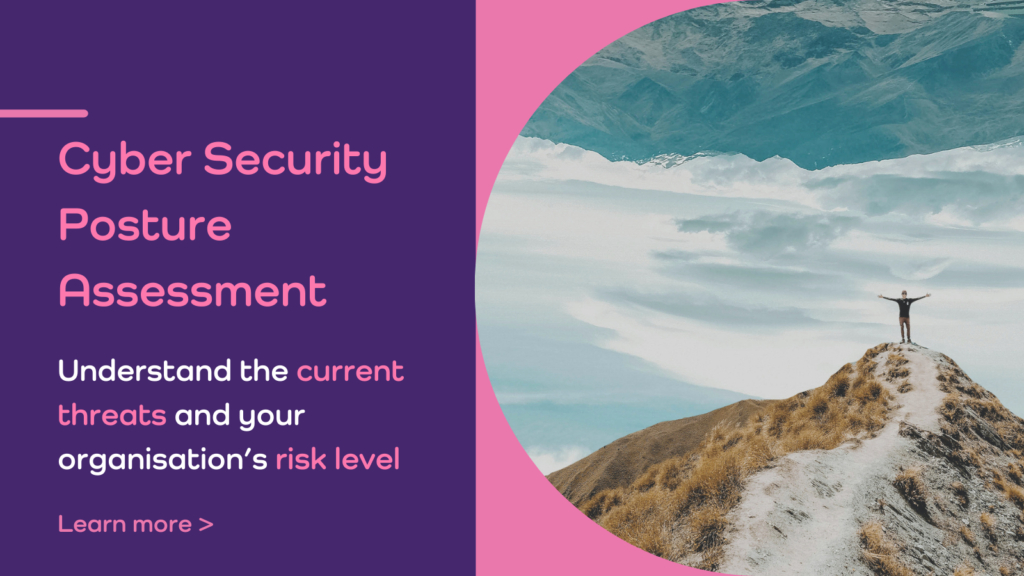Over the past two decades technology has advanced rapidly and fundamentally changed the way that businesses function. Whilst this has primarily been a positive experience for businesses, these advancements have also given rise to an increase in cybercrime. With the current prevalence of cybercrime, all organisations are currently at risk of falling victim to a cyberattack. Thankfully, many businesses are aware of the risk and starting to invest more time and money into protecting their data and systems.
If your business is looking into how to prevent a cyberattack or data breach, it is important to first understand the different types of security and their principles and differences. In this article we will discuss the definitions of information security and cyber security, the key principles of each and why they matter to your business.
What is information security?
Information security are the practices organisations implement to protect their business records, data and intellectual property. These practices ensure that both physical and digital data is protected from unauthorised access, deletion, corruption, unlawful use, or modification. The key information security principle is the CIA triad, which is a focus on the balanced protection of the confidentiality, integrity and availability of data.
What is cyber security?
Cyber security is a branch of information security including the practices an organisation undertakes to reduce the risk of a cyberattack. These practices are focused on technology to stop cybercriminals from accessing sensitive information, extorting money from users, or interrupting normal business procedures. Common cyber security practices include protecting networks, endpoints and educating users on how to avoid an attack.
Key information security principles
The key information security principle is the CIA triad, this includes:
Confidentiality – Protecting confidentiality ensures that that any sensitive information is not made available or disclosed to unauthorised individuals, entities or processes. Countermeasures that protect confidentiality include defining and enforcing access levels for information, as well as avoiding password theft, device theft and ensuring sensitive data is encrypted.
Integrity – Integrity in the CIA triad is focused on ensuring that information has not been modified, and therefore can be trusted to be correct and authentic. Integrity can be comprised by a cybercriminal causing a data breach and modifying data for malicious reasons. Integrity can also be compromised by human error or poor access policies and procedures. Countermeasures that protect integrity include digital signatures, hashing, physical and digital intrusion protection systems, and strong authentication methods, including multi-factor authentication.
Availability – For a business to function effectively, it is important that information is available whenever it is needed. This means that all networks, systems, and applications are working as intended to allow authorised users access to resources as required. The key risks to data availability include hardware failure, natural disasters, denial of service attacks and human error. Countermeasures that ensure data availability include backups, data redundancy, denial of service protection and a comprehensive disaster recovery plan.
Key Cyber Security Principles
Network security – Network security includes any measure taken to protect the usability, security and integrity of a network and its data. This includes hardware and software solutions designed to stop cybercriminals from accessing a network or spreading malware within a network. Some network security measures include firewalls, network-wide email security and anti-malware software, and authentication solutions.
Endpoint security – Whereas network security aims to protect a network as a whole, endpoint security aims to protect the individual end-user devices that connect to a network, however there is overlap between the two. These endpoint devices include desktops, laptops, servers, smartphones and IoT devices. Common endpoint security solutions include privileged access management, endpoint protection platforms, device anti-malware, application control and patch management.
User Education and Awareness – A significant factor in keeping businesses safe from a cyberattack is ensuring users of networks and systems have an awareness of common attack vectors. Some common attack vectors include phishing emails, compromised or weak credentials, malvertising and brute force attacks. If an organisation runs regular cyber security education and awareness training it enables employees to detect a potential attack or breach of procedure before it is too late.
Why information security and cyber security matter
In 2021, the greatest threat to all businesses, regardless of size or industry, is a cyberattack or data breach. As the methods cybercriminals are using become more complex and attacks more prevalent, if your business has not secured their network, systems, and information, now is the time to start taking security seriously. If you want to find out more about how to implement a comprehensive information security or cyber security solution within your organisation, get in touch today.







